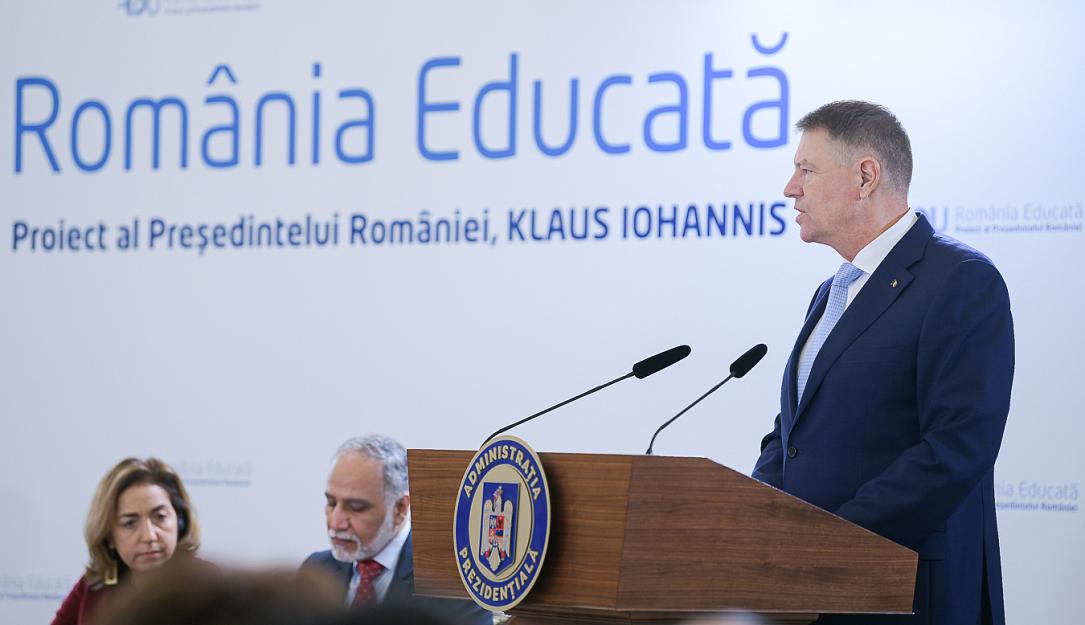President Iohannis: Lack of quality education, a threat to Romania’s development



The lack of quality education, that is accessible to all children, is turning into a threat to Romania’s long-term development, president Klauss Iohannis said at an education conference held on January 29 at the Cotroceni Palace, the headquarters of the Romanian presidency.
The conference saw the launch of four public policy documents concerning teaching careers, school management, equity and early education, as part of the Educated Romania project, initiated by the president.
Although “not all of the problems in the education sector can be solved overnight”, the results at the PISA tests released some two months ago show the need for fast and solid solutions, the president argued.
“In the age of artificial intelligence, we cannot have an endemic functional illiteracy issue among our population. And we cannot, in the context of an already marked ageing of the population, let hundreds of youth unprepared for the demands of a globalized economy, that is continuously changing, but also those of a society who, if it will not develop sustainably, it will simply cease to exist in its current form,” the president said.
Iohannis said that efforts to improve the quality of education should focus on areas that have been neglected in the past and have the potential to generate indirect benefits for other educational areas. He gave the example of occupational education, which was about to be completely abolished only a decade ago but today is an important route for thousands of Romanian youth. The president also argued in favor of quality educational management and the need to train teachers who are well prepared to cover the needs of this form of education, “often treated as the poor relative of theoretical education.”
The president also spoke of the missing education sector dedicated to jobs that require a high level of qualification. “The diversity of modern economy is increasingly demanding the expansion of this educational alternative, in order to allow the training of highly qualified specialists and technicians. Dual system tertiary-level occupational education is absolutely needed and theoretical programs currently available at universities cannot take its place,” he said.
He also pointed to the lack of or under-representation of early education facilities, for children up to 3 years old, in many areas of the country, and the difficulties parents encounter when in need to return to the workforce and find a nursery.
editor@romania-insider.com